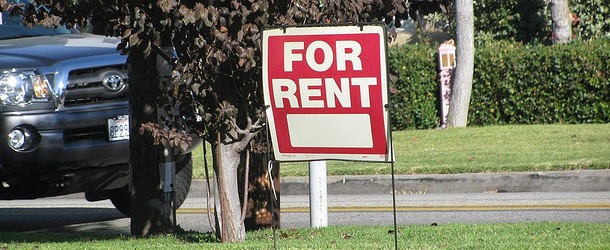Bank of America CEO Brian Moynihan got down to brass tacks today. Well, sort of. As much as the CEO of one of the world’s largest banks can get.
In prepared remarks at the Brookings Future of Homeownership Forum where he was the keynote speaker, Moynihan questioned homeownership at its core.
He noted that Americans’ view of homeownership has gone “from building long term equity to cashing in on short term equity gains.”
Moynihan pointed to a surge in investment properties, which increased from a historical four percent share to a high of 28% in 2006, just before everything went so terribly wrong.
And added that home flipping was the norm, noting that in late 2005 more than 80% of all refinancing involved cash out, or tapping home equity.
Homeowners became overleveraged, and we all know what happened next – those with little or no equity stopping making payments, and the whole thing came crashing down.
Housing Isn’t For Everyone?
Moynihan also seemed to question whether just anyone should own a home.
“As a just, democratic society, we owe all our citizens a safe, good place to live. But, a roof over one’s head doesn’t always have to come with mortgage debt. And in many cases shouldn’t.”
He also took aim at the financial benefits of owning a home, remarking that since 2001 average appreciation has been just two percent.
And that recent and ongoing weak economic growth, unemployment, and slower household formation will make a home purchase all the less certain in the future.
In short, a quick flip may not be feasible in today’s market, and even those who put little down could land in hot water if they’re unable to make payments for one reason or another.
Put simply, nowadays homeowners must truly qualify for the mortgages they obtain, as skyrocketing home prices probably won’t be the savior this time around.
During the good old days, it didn’t really matter if a borrower was qualified – they could count on the home’s value appreciating to a point where they could sell or refinance again, all while making an interest-only payment or relying on a short-term teaser rate.
10% Minimum Down Payment
While not explicitly calling for a higher minimum down payment, Moynihan said, “10 percent seems reasonable,” but argued that there is “nothing magic about a 20 percent down payment.”
He added that a solid down payment incentivizes the positive attributes of homeownership, such as the “delayed gratification of having worked for something,” along with an equity cushion if anything goes wrong.
Moynihan also questioned the FHA’s role in the mortgage market, going from serving the underserved to doling out the largest loans in the country, with as little as 3.5% down.
Speaking of questionable lending, he noted that Bank of America exited subprime lending back in 2001 and was criticized for doing so.
With regard to Fannie and Freddie, he highlighted the need for a return of private capital, seeing that the government backs about nine out of 10 mortgages these days, but noted that it would take time for such a shift to take place.
No, we can’t just kick the government out of housing overnight…
Gotta Move Forward
Despite all the perceived pessimism, he noted that the “housing market is showing signs of real, sustained recovery,” with home prices increasing and demand rising.
But added that we must continue moving forward, even if it means transitioning former owners into renters, largely because many can’t even make a modified mortgage payment.
Moynihan said Bank of America has 50,000 employees working on roughly 900,000 bad mortgages, and that it has already helped 1.5 million people avoid foreclosure via short sales, loan modifications, and other programs.
He argued that the bank must be more efficient in handling its distressed inventory, with 40% of the bank’s foreclosure sales involving vacant properties.
And that now is the time to take the lessons learned from the crisis to create a more sustainable housing market going forward.
In recent years, Bank of America has been actively minimizing its presence in the mortgage market, exiting the wholesale and reverse mortgage channels, and greatly reducing its share of total loan origination volume.
They even had a waiting list to refinance, meaning you might want to shop around elsewhere if you’re in the market for a new mortgage.


The real estate bubble, the bust, 2006 surge in investment properties, house flipping, equity tapping, high risk loans, the foreclosure crises, everything that bothers Mr. Moynihan occurred because of government interference in the mortgage industry. Those weren’t “the good old days,” Mr. Moynihan. Only good loans were made to quality customers long before before the government, spured on by community organizers, forced banks to relax lending standards. By the way, B of A jumped on the unseemly profits during what you think were “the good old days.” Shut-up, Mr. Moynihan.
Why be so hostile to Mr. Moynihan? What he said is sound advice. He is not responsible for selfish people who walked away from their commitment to pay a mortgage, just because their house was “upside down”. Nothing changed regarding their house or their promise to pay other than their “perceived” value of the home dropped. Obtaining a home loan should not be a right, it should be a privilege you earn through maintaining good credit and having a stable income. The problem is a society with lowered morals and lack of respect for themselves and others. I am proud to be a homeowner, I worked very hard to correct past bad credit problems and become a trustworthy borrower. I will always do everything in my power to see I pay on time. I also purchased a modestly priced home that I know I can make the payment on even if I lost my current job and had to accept much less in pay.